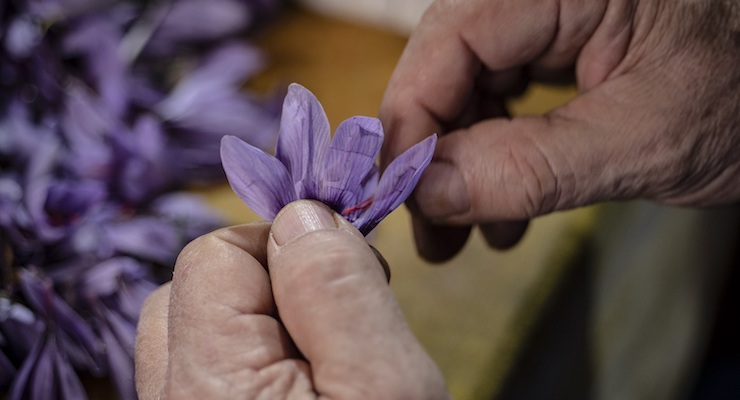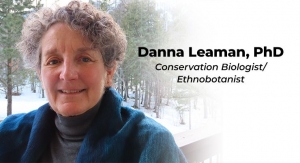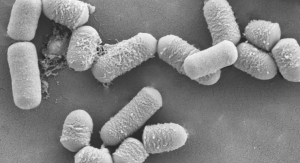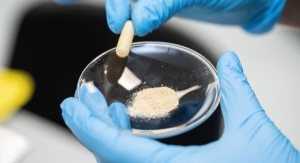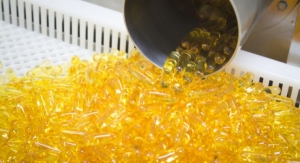01.11.22
Pharmactive Biotech Products S.L.U., a Madrid-based nutraceutical ingredient supplier specializing in saffron extract and aged black garlic, shared the details of its long-term sustainability program, which has been certified according to ISO 14001:2015 standards.
The program’s key areas of focus include an emphasis on fair trade, boosting local women’s workforces, reducing energy consumption and waste through upcycling, and promoting crops that support biodiversity, both to keep its operations in harmony with the natural environment and to bolster local rural communities.
The company reports that its sustainable sourcing and production protocols will be cemented by its complete control of supply channels, in order to ensure the quality and ethical sourcing of its organic-certified botanicals, such as its flagship Affron saffron extract, or its ABG+ line of aged black garlic ingredients, both of which are extracted through a proprietary green extraction process.
As part of the policy, Pharmactive has laid out a long-term contract farming plan to reinforce the local economy and workers in remove areas of the Castille-La-Mancha region of Spain and support Spanish culture heritage preservation.
Repopulating Empty Spain
Pharmactive’s saffron is grown in private fields within the rural community of Castilla-La-Mancha, Spain. Its contract farming program is designed to secure income and livelihoods of the farmers living within the provinces of this sparsely populated region. In return, the farmers must commit to the traditional and ecological agricultural and harvesting practices delineated by the company.
“Spain is scattered with rural areas dubbed ‘empty Spain’ due to populations abandoning these towns to seek better employment opportunities within the larger metropolises,” Julia Diaz, head of marketing for Pharmactive, said. “Castille is considered an important ancient agrarian cultural heritage site of Spain, yet it has been suffering from this ghost town syndrome. As a result, the government is pushing incentives to attract people to the region, and we have deployed our initiatives to try and help our government reverse the trend.”
Pharmactive reports that beyond negotiating attractive pay schemes and work contracts with farmers, the program essentially ensures demand for full harvests every year. The company also works to promote employment prospects for women in the region – women specialize in harvesting the sensitive saffron materials by hand, avoiding the use of machinery. Additionally, this method requires no energy consumption and doesn’t cause waste emissions, the company said. “Otherwise unemployed senior women living in these suburbs are also provided an opportunity to contribute their know-how while keeping alive an ancient tradition.”
Best Practices
The company adheres to the Spanish agricultural tradition of ‘Barbecho,’ which calls for letting fields lie fallow, allowing the land to rejuvenate and restore its organic matter every six to eight years.
“This practice exerts a positive impact through multiple mechanisms,” Jean-Marie Raymond, CEO at Pharmactive, said. “It enriches the ecosystem, promotes biodiversity, and benefits pollinating insects. It also protects endangered species, such as several native steppe habitat birds, and helps naturally control pests, fungi, and weeds. Furthermore, this ancient practice gives us a means of sustaining the earth so that it can continue to sustain us.”
The agricultural conditions also encourage avoiding the use of phytosanitary chemicals in saffron cultivation, and promotes the use of natural fertilizers.
Achieving IPO Certification
Pharmactive was able to achieve ISO certification of its environmental management system through farm-to-finish control of its supply, from farming, to extraction, to distribution, the company reports.
“Such controlled processes enable Pharmactive to guarantee the organic quality of its locally grown ingredients, helping brands it serves stay green,” Raymond said. “Garlic for our certified organic ABG+ is cultivated just two hours away from where it is aged and processed in Madrid, minimizing the environmental impact of transportation.”
“We are committed to developing a fair and enduring relationship with the communities involved in the sourcing and processing saffron,” Diaz said. “Pharmactive’s operations are based on solid principles of respect for the environment and a desire to contribute to the quality of life of communities we work with and the consumers we serve.”
The program’s key areas of focus include an emphasis on fair trade, boosting local women’s workforces, reducing energy consumption and waste through upcycling, and promoting crops that support biodiversity, both to keep its operations in harmony with the natural environment and to bolster local rural communities.
The company reports that its sustainable sourcing and production protocols will be cemented by its complete control of supply channels, in order to ensure the quality and ethical sourcing of its organic-certified botanicals, such as its flagship Affron saffron extract, or its ABG+ line of aged black garlic ingredients, both of which are extracted through a proprietary green extraction process.
As part of the policy, Pharmactive has laid out a long-term contract farming plan to reinforce the local economy and workers in remove areas of the Castille-La-Mancha region of Spain and support Spanish culture heritage preservation.
Repopulating Empty Spain
Pharmactive’s saffron is grown in private fields within the rural community of Castilla-La-Mancha, Spain. Its contract farming program is designed to secure income and livelihoods of the farmers living within the provinces of this sparsely populated region. In return, the farmers must commit to the traditional and ecological agricultural and harvesting practices delineated by the company.
“Spain is scattered with rural areas dubbed ‘empty Spain’ due to populations abandoning these towns to seek better employment opportunities within the larger metropolises,” Julia Diaz, head of marketing for Pharmactive, said. “Castille is considered an important ancient agrarian cultural heritage site of Spain, yet it has been suffering from this ghost town syndrome. As a result, the government is pushing incentives to attract people to the region, and we have deployed our initiatives to try and help our government reverse the trend.”
Pharmactive reports that beyond negotiating attractive pay schemes and work contracts with farmers, the program essentially ensures demand for full harvests every year. The company also works to promote employment prospects for women in the region – women specialize in harvesting the sensitive saffron materials by hand, avoiding the use of machinery. Additionally, this method requires no energy consumption and doesn’t cause waste emissions, the company said. “Otherwise unemployed senior women living in these suburbs are also provided an opportunity to contribute their know-how while keeping alive an ancient tradition.”
Best Practices
The company adheres to the Spanish agricultural tradition of ‘Barbecho,’ which calls for letting fields lie fallow, allowing the land to rejuvenate and restore its organic matter every six to eight years.
“This practice exerts a positive impact through multiple mechanisms,” Jean-Marie Raymond, CEO at Pharmactive, said. “It enriches the ecosystem, promotes biodiversity, and benefits pollinating insects. It also protects endangered species, such as several native steppe habitat birds, and helps naturally control pests, fungi, and weeds. Furthermore, this ancient practice gives us a means of sustaining the earth so that it can continue to sustain us.”
The agricultural conditions also encourage avoiding the use of phytosanitary chemicals in saffron cultivation, and promotes the use of natural fertilizers.
Achieving IPO Certification
Pharmactive was able to achieve ISO certification of its environmental management system through farm-to-finish control of its supply, from farming, to extraction, to distribution, the company reports.
“Such controlled processes enable Pharmactive to guarantee the organic quality of its locally grown ingredients, helping brands it serves stay green,” Raymond said. “Garlic for our certified organic ABG+ is cultivated just two hours away from where it is aged and processed in Madrid, minimizing the environmental impact of transportation.”
“We are committed to developing a fair and enduring relationship with the communities involved in the sourcing and processing saffron,” Diaz said. “Pharmactive’s operations are based on solid principles of respect for the environment and a desire to contribute to the quality of life of communities we work with and the consumers we serve.”

